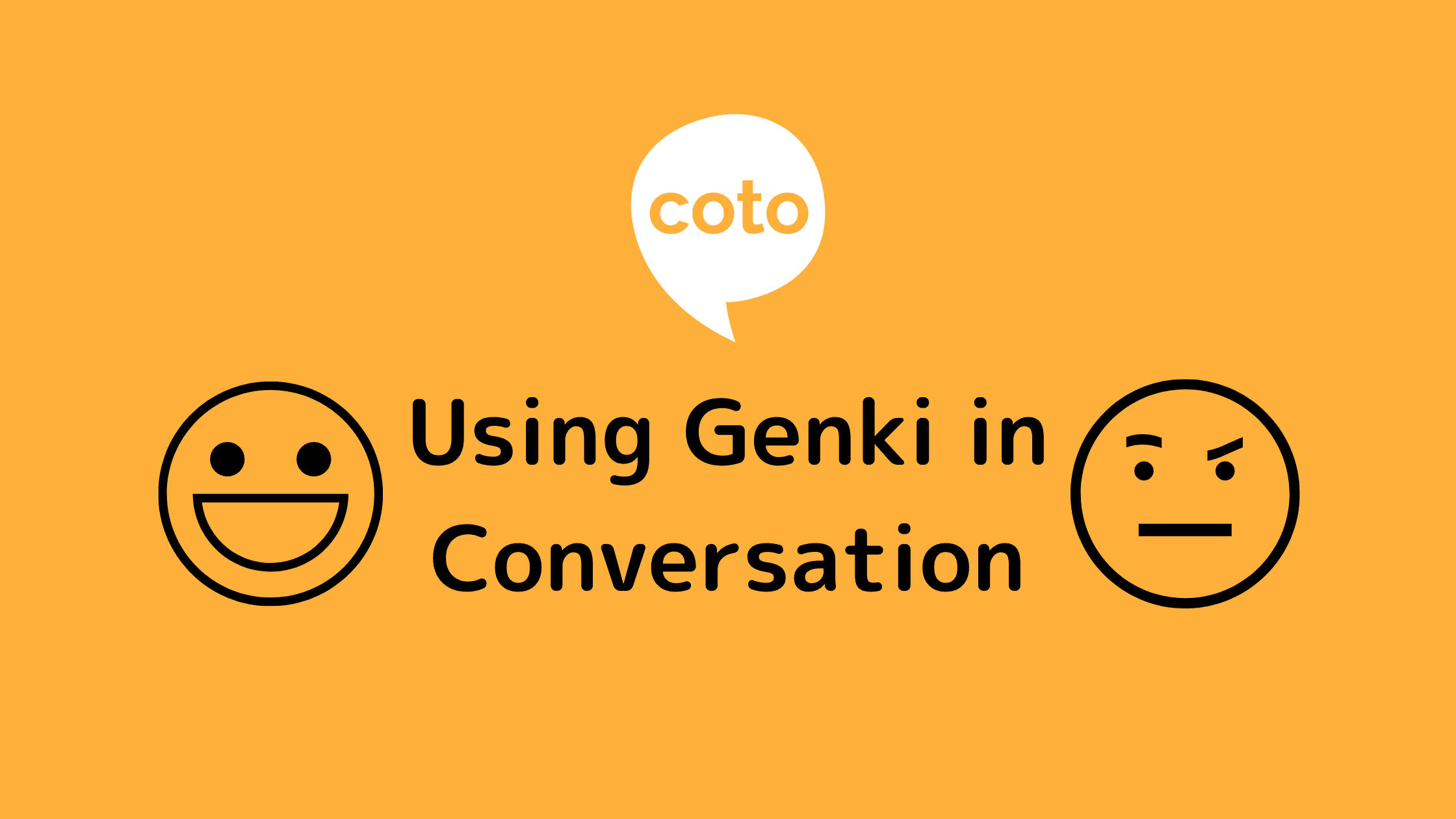ニュース What does so Genki mean?. トピックに関する記事 – What does Genki mean in Japanese slang

Genki, 元気, can mean the foillwoing; lively; full of spirit; energetic; vigorous; vital; spirited; healthy; well; fit; in good health.The Japanese word “genki” (元気) means “I'm fine”, “I'm well”, or “I'm in good health”, but it can also be used to say that someone is or is doing something “lively”, “energetic”, or… AlexRockinJapanese | Japanese Study Blog. AlexRockinJapanese.com. Japanese Grammar. Japanese Phrases.One possible response to 'genki desu ka' in Japanese could be 'hai, genki desu' which translates to 'yes, I am well'. This is a polite and common way to respond to the question, as it shows that the person is in good health and spirits.

What does Genki translate to in Englishhealth, vigor, energy
The dictionary definition is “health, vigor, energy”.
Do Japanese people say Genki
However, keep in mind that most of the time, saying “genki” should be reserved for people you haven't seen in a while. Most of the time, Japanese people simply greet each other and don't ask how someone is doing unless they haven't seen each other in a while and are catching up.Often you will hear younger people describing their elders as “Genki” – this means that even though someone is advanced in years – they are still in good spirits and young at heart. So there are several ways that you can use Genki as both a greeting and an adjective in spoken Japanese.
Do Japanese people use Genki
For a close friend you're totally fine to just say “Genki” when you see them or talk to them for the first time in a while. This is equivalent to English “How's it going”, “How've you been”. お元気ですか you would use with someone older, deserving of more respect – a teacher, landlord etc.

“genki desu ka” is more polite than ”genki” and is used by people in higher positions to people in lower positions. For example, teachers to students and superiors to subordinates. “genki” is the most casual and is used among friends.
What is Genki desu
When someone asks you if you are genki – you can simply say – “genki desu.” – In English, the equivalent would be something like. “How are you” – “I'm Good.” If you would like to answer this question in the negative – you can also do that with the following sentences: 元気ではありません。 Genki de wa arimasen.わたしはげんき。 Watashi wa genki desu. I'm fine.Okay, so you now know how to have genki, but what if you have genki for doing something The pattern for that is [verb]+元気. Specifically, that verb should be in dictionary form, for example: 食べる元気 (genki to eat). This means you have a lot of energy, excitement, pep, vigor, etc. to do whatever you're doing.
